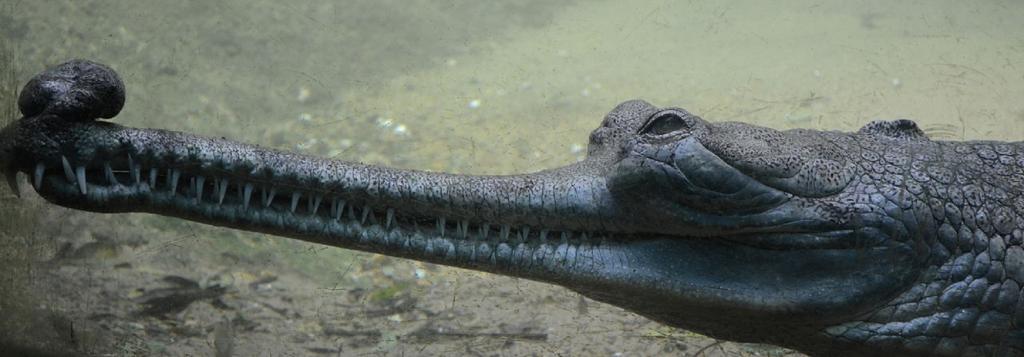研究:气候变化加速冷血物种灭绝
研究:气候变化加速冷血物种灭绝
For more than a century, aging has been explained by the rate of metabolism — the faster the body functions and the sooner it reproduces, the shorter the lifespan. But is it so?
一个多世纪以来,衰老一直被解释为新陈代谢的速度——身体功能越快,繁殖越快,寿命就越短。但事实果真如此吗?
Researchers from the Queen’s University Belfast and Tel Aviv University found reasons to doubt the ‘Rate of Living’ theory: They didn’t find any correlation between the rate of living and lifespan.
贝尔法斯特女王大学和特拉维夫大学的研究人员发现了质疑“寿命”理论的理由:他们没有发现生存速度和寿命之间有任何联系。
Their expansive sample study rather found a “huge” impact of global warming on the life expectancy of cold-blooded species such as reptiles and amphibians. A warmer climate indeed shortened the lifespan of such species, pushing them towards faster extinction.
他们广泛的样本研究发现,全球变暖对爬行动物和两栖动物等冷血动物的预期寿命有“巨大”影响。气候变暖确实缩短了这些物种的寿命,将它们推向更快的灭绝。

Researchers from the two varsities analysed metabolism of 4,100 land vertebrate species from across the world and didn’t find any effect of the ‘rate of living’ on ageing. According to their release:
来自这两家机构的研究人员分析了来自世界各地的4100种陆地脊椎动物的新陈代谢,并没有发现“生存速度”对衰老有任何影响。据他们透露:
Over 100 years old, until now the theory had not been tested at a global scale with all land vertebrates and there were limitations with the range of species the theory was tested on.
该理论已有100多年的历史,但至今尚未在全球范围内对所有陆地脊椎动物进行测试,而且该理论所测试的物种范围也存在局限性。
The study, published in the journal Global Ecology and Biogeography, found the rate of ageing “in cold-blooded organisms including amphibians and reptiles are linked to high temperatures”.
这项发表在《全球生态与生物地理学》杂志上的研究发现,“包括两栖动物和爬行动物在内的冷血生物的衰老速度与高温有关”。
The researchers have now proposed an alternative hypothesis to the ‘rate of living’: The hotter the environment is, the faster the rate of living that in turn leads to more accelerated aging and a shorter lifespan.
研究人员现在提出了“生活率”的另一种假设:环境越热,生活率就越快,从而加速衰老,缩短寿命。
The findings can be critical to understanding factors contributing to extinctions, especially at the modern times of a worldwide decline in biodiversity, said Daniel Pincheira-Donoso — a co-author of the study and a lecturer in ‘Evolution and Macroecology’ at the School of Biological Sciences at Queen’s University.
研究报告的作者之一、皇后大学(Queen ' s University)生物科学学院(School of Biological Sciences)“进化与宏观生态学”(Evolution and Macroecology)讲师丹尼尔·平切拉-多诺索(Daniel Pincheira-Donoso)说,这些发现对于理解导致物种灭绝的因素可能至关重要,尤其是在当今世界生物多样性下降的时代。
“Now we know that the life-expectancy of cold-blooded vertebrates is linked to environmental temperatures, we could expect to see their lifespans further reduced as temperatures continue to rise through global warming,” Pincheira-Donoso said.
平切拉-多诺索说:“现在我们知道,冷血脊椎动物的寿命与环境温度有关,随着全球变暖导致气温持续上升,它们的寿命可能会进一步缩短。”
The team’s findings mean that cold-blooded species are more vulnerable to global warming and faster extinction. “Indeed, if increasing ambient temperatures reduces longevity, it may make these species more prone to go extinct as the climate warms,” said Gavin Stark, a lead author of the study at Tel Aviv University.
该研究小组的发现意味着,冷血物种更容易受到全球变暖和更快灭绝的影响。特拉维夫大学这项研究的主要作者加文·斯塔克说:“事实上,如果环境温度升高导致寿命缩短,那么随着气候变暖,这些物种可能更容易灭绝。”
- 频道推荐
- |
- 全站推荐
- 推荐下载
- 网站推荐


















